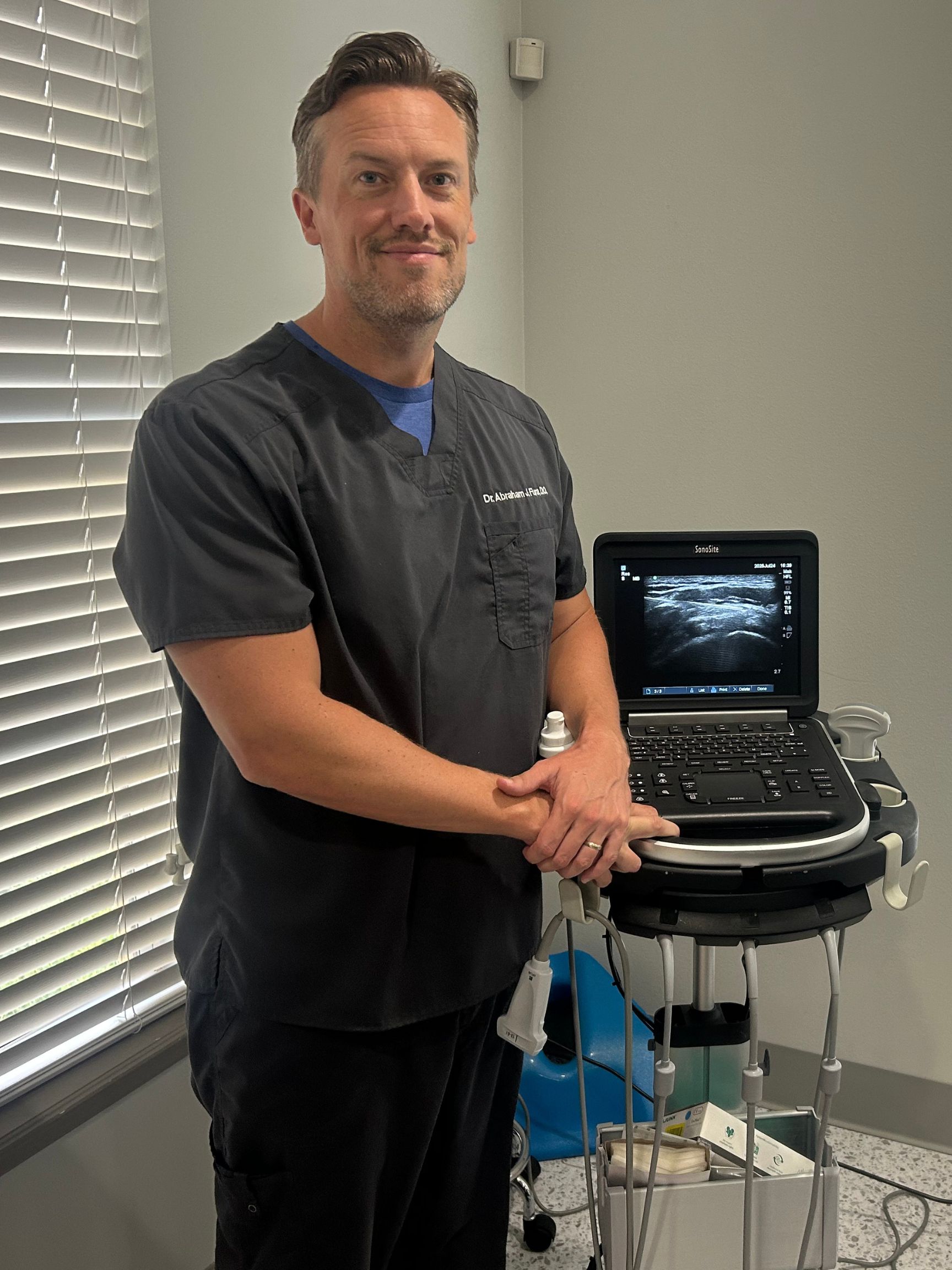
A COMPLEX PAIN DISORDER
Fibromyalgia is a chronic disorder characterized by widespread musculoskeletal pain, profound fatigue, and cognitive difficulties often called "fibro fog." It is considered a central pain amplification disorder, meaning the brain and spinal cord process pain signals differently, essentially turning up the "volume" of pain. While there is no cure, we want you to know that your pain is real, and you are not alone. A comprehensive, multi-disciplinary management plan can effectively control symptoms, improve sleep, and help you reclaim your quality of life.

TRIGGERS & CAUSES
The exact cause of fibromyalgia is unknown, but it's believed to involve a combination of genetic factors and specific triggers that alter how the central nervous system processes pain.
Fibromyalgia often runs in families, suggesting that certain genetic variations may make a person more susceptible to developing the condition.
Symptoms frequently begin after a significant event like a car accident, major surgery, or a period of intense psychological stress.
In some individuals, the onset of fibromyalgia appears to be triggered by certain viral or bacterial infections.
People with other rheumatic diseases like lupus or rheumatoid arthritis are at a higher risk of also developing fibromyalgia.

RECOGNIZING THE SIGNS
The symptoms of fibromyalgia can be extensive and may fluctuate in intensity. The fatigue and cognitive issues are often just as debilitating as the widespread pain.
The primary symptom: a chronic, dull ache that affects both sides of your body, as well as areas both above and below your waist.
A profound and persistent exhaustion that is not relieved by sleep. Many patients wake up feeling as tired as when they went to bed.
A feeling of mental cloudiness that impairs your ability to focus, pay attention, and remember things.
Difficulty falling asleep or staying asleep is common. Many patients also suffer from non-restorative sleep, meaning they don't feel refreshed upon waking.
Specific points on the body, such as the back of the head, upper chest, and hips, that are painful to firm touch.
Fibromyalgia often occurs alongside other conditions, such as irritable bowel syndrome (IBS), migraines, and TMJ disorders.
Living with the widespread pain, fatigue, and 'fog' of fibromyalgia can be an isolating journey. We want you to know that we see you, we hear you, and we understand. A comprehensive and compassionate management plan can make a profound difference. Contact us to learn about a personalized strategy to help you reclaim your quality of life.